Home > Art News

The origin of the Bini people is way too deep. It is better for us to leave it as it is.
Because we're bound to get lost if we choose to quest.
For if the ancient throne of Oduduwa can be, disputedly, traced to the Bini (Benin) kingdom, then the origin of Oduduwa's origin can only be traced to the sky.
However, it never fails to warm the heart when it stands transfixed at the magnificence of the Bini culture. A culture that is known for its solemn reverence for the past by the present.
The Edo or Bini (from the word "Benin") people are an ethnic group primarily found in Edo State, and spread across the Delta, Ondo, and Rivers states of Nigeria. They speak the Edo language and are the descendants of the founders of the Benin Empire.
They are closely related to other ethnic groups that speak Edoid languages, such as the Esan, It is, however, important to state here that the name "Benin" (and "Bini") is a Portuguese corruption, ultimately from the word "Ubinu", which came into use during the reign of Oba Ewuare the Great, c. 1440.
"Ubinu" was used to describe the royal administrative centre or city or capital proper of the kingdom, Edo. Ubinu was later corrupted to Bini by the mixed ethnicities living together at the centre, and further corrupted to Benin around 1485 when the Portuguese began trade relations with Oba Ewuare.
Benin food
The traditional food of the Edos is a representative of what is obtained in most southern state of Nigeria.
And they include pounded yam or eba eaten with vegetable, melon or okra soups cooked with bush meat [antelope, pig, and grass cutter] beef or fish... Yam and rice served with varieties of soup and meat or fish.
Cocoyam porridge is also very popular.
Native beverages include palm wine and Ogoro. These drinks are made from the juices of palm trees.
Also included in this category, is Ogogoro {kai-kai} which is distilled from the juice of Raffia palm trees.
Benin belief system
Traditionally, it is the belief of the Edo people that the universe is divided into two planes of existence: the visible world of everyday life ( agbon ) and the invisible spirit world ( erinmwin ).
It is also believed that both worlds were created by Osanobua (God Almighty).
Owing to the state of their inner development, Osanobua is rather remote. Hence the worshiping of other deities, who are believed to be His children.
And among the Bini people, Olokun who is perceived to be Osanubua's oldest son, is the most venerated deity; especially among women who join local congregations to pray and sacrifice for children.
Olokun is the ruler of the global waters and the provider of wealth and fertility.
There's also Ogun, the god of iron; Osun, the power inherent in leaves and herbs, the special concern of herbalists.
Ogiuwu, the god of death; and Obienmwen, the goddess of safe delivery are included among many others.
Death and Life
It is undeniably true that the depth of the Edo people goes beyond the reach of words. And truer still is the fact that this depth, is embedded in their belief system.
To the Edos, death is seen as part of a cycle in which an individual moves between the spirit world and the everyday world in a series of fourteen reincarnations.
The beginning of each cycle commences with an appearance before Osanubua. And it is here that it is believed that a person announces his or her destiny or life plan.
Also, present in this appearance is the person's spiritual counterpart (ehi). The ehi is believed to monitor the person's adherence to the announced plan.
And after death, the person and his or her ehi must give an account to Osanobua.
Should it be that the account is acceptable, the person joins the ancestors in the spirit world until the time for reincarnation comes again.
Author: Duke Oreva
Source: pulse.ng
BENIN: THE HALLOWED CULTURE OF ONE OF THE WORLD'S MOST ANCIENT PEOPLE

The origin of the Bini people is way too deep. It is better for us to leave it as it is.
Because we're bound to get lost if we choose to quest.
For if the ancient throne of Oduduwa can be, disputedly, traced to the Bini (Benin) kingdom, then the origin of Oduduwa's origin can only be traced to the sky.
However, it never fails to warm the heart when it stands transfixed at the magnificence of the Bini culture. A culture that is known for its solemn reverence for the past by the present.
The Edo or Bini (from the word "Benin") people are an ethnic group primarily found in Edo State, and spread across the Delta, Ondo, and Rivers states of Nigeria. They speak the Edo language and are the descendants of the founders of the Benin Empire.
They are closely related to other ethnic groups that speak Edoid languages, such as the Esan, It is, however, important to state here that the name "Benin" (and "Bini") is a Portuguese corruption, ultimately from the word "Ubinu", which came into use during the reign of Oba Ewuare the Great, c. 1440.
"Ubinu" was used to describe the royal administrative centre or city or capital proper of the kingdom, Edo. Ubinu was later corrupted to Bini by the mixed ethnicities living together at the centre, and further corrupted to Benin around 1485 when the Portuguese began trade relations with Oba Ewuare.
Benin food
The traditional food of the Edos is a representative of what is obtained in most southern state of Nigeria.
And they include pounded yam or eba eaten with vegetable, melon or okra soups cooked with bush meat [antelope, pig, and grass cutter] beef or fish... Yam and rice served with varieties of soup and meat or fish.
Cocoyam porridge is also very popular.
Native beverages include palm wine and Ogoro. These drinks are made from the juices of palm trees.
Also included in this category, is Ogogoro {kai-kai} which is distilled from the juice of Raffia palm trees.
Benin belief system
Traditionally, it is the belief of the Edo people that the universe is divided into two planes of existence: the visible world of everyday life ( agbon ) and the invisible spirit world ( erinmwin ).
It is also believed that both worlds were created by Osanobua (God Almighty).
Owing to the state of their inner development, Osanobua is rather remote. Hence the worshiping of other deities, who are believed to be His children.
And among the Bini people, Olokun who is perceived to be Osanubua's oldest son, is the most venerated deity; especially among women who join local congregations to pray and sacrifice for children.
Olokun is the ruler of the global waters and the provider of wealth and fertility.
There's also Ogun, the god of iron; Osun, the power inherent in leaves and herbs, the special concern of herbalists.
Ogiuwu, the god of death; and Obienmwen, the goddess of safe delivery are included among many others.
Death and Life
It is undeniably true that the depth of the Edo people goes beyond the reach of words. And truer still is the fact that this depth, is embedded in their belief system.
To the Edos, death is seen as part of a cycle in which an individual moves between the spirit world and the everyday world in a series of fourteen reincarnations.
The beginning of each cycle commences with an appearance before Osanubua. And it is here that it is believed that a person announces his or her destiny or life plan.
Also, present in this appearance is the person's spiritual counterpart (ehi). The ehi is believed to monitor the person's adherence to the announced plan.
And after death, the person and his or her ehi must give an account to Osanobua.
Should it be that the account is acceptable, the person joins the ancestors in the spirit world until the time for reincarnation comes again.
Author: Duke Oreva
Source: pulse.ng
Art News
Bruce Onobrakpeya’s Harmattan Workshop exhibition turns LCA into museum
Click to read...
Plein Air Lagos- Exploring & Painting Lagos
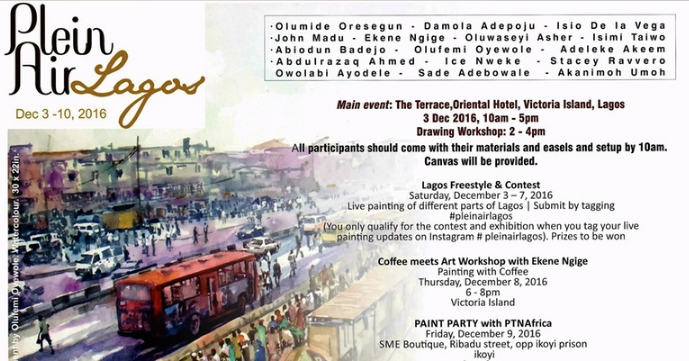
Click to read...
Arthouse Foundation Artist Talk and Open Studios
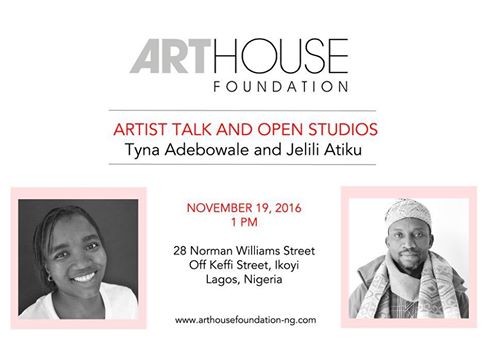
Click to read...
Yabatech 2016 Alumni Achievers’ Art Exhibition and Awards
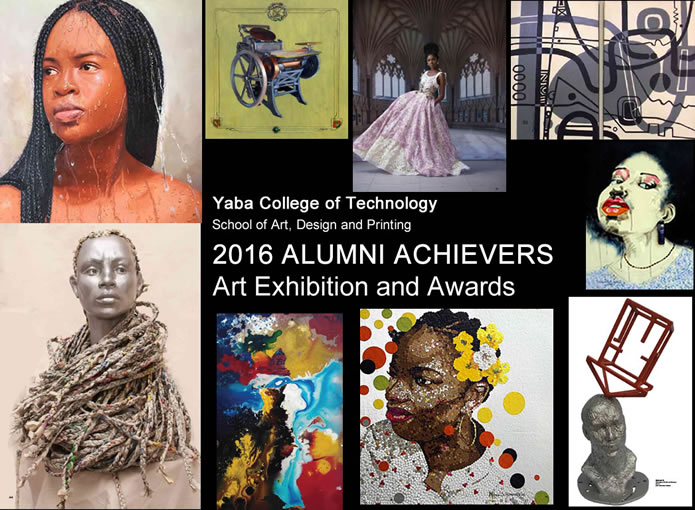
Click to read...
The seventh edition of the annual Lagos Photo Festival has kicked off from October 22, 2016.
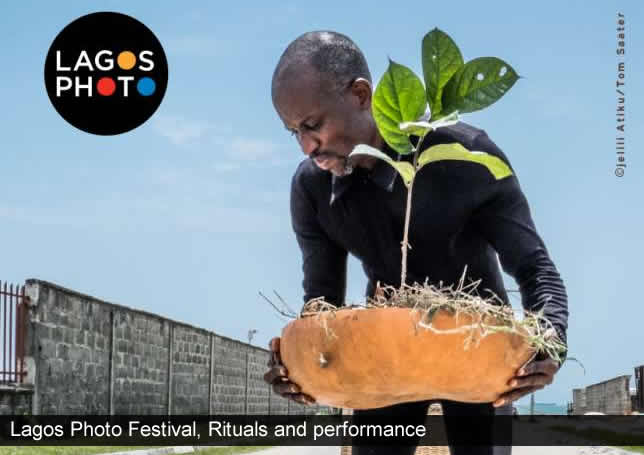
Click to read...
Oresegun Olumide: The Nigerian artist making a splash
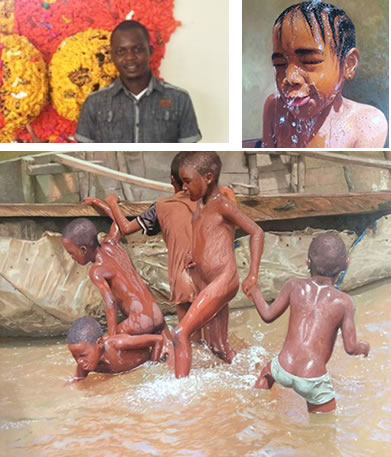
Click to read...
Tips on how to sell your artwork on FineArt.com.ng

Click to read...
BEN ONUORAH Book: contains more than 100 artworks
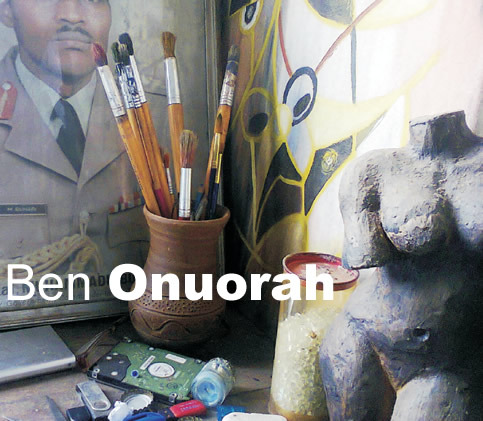
Click to read...
[First Page] [Prev] Page 11 of 12 [Next] [Last Page]